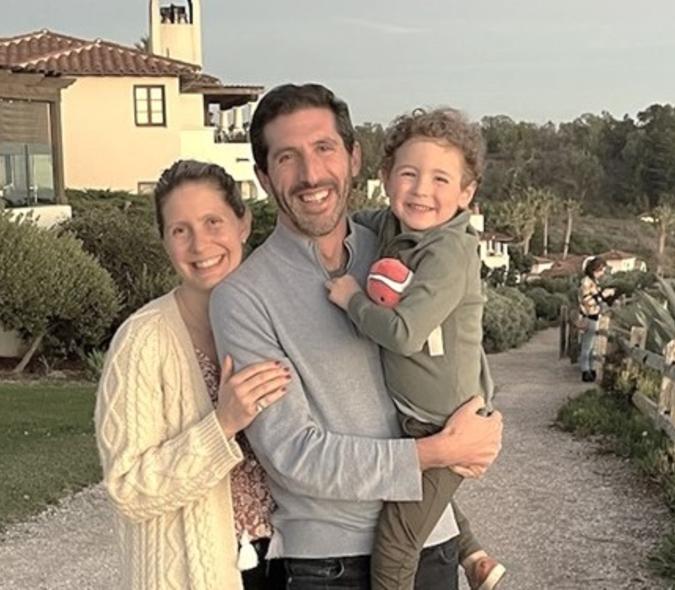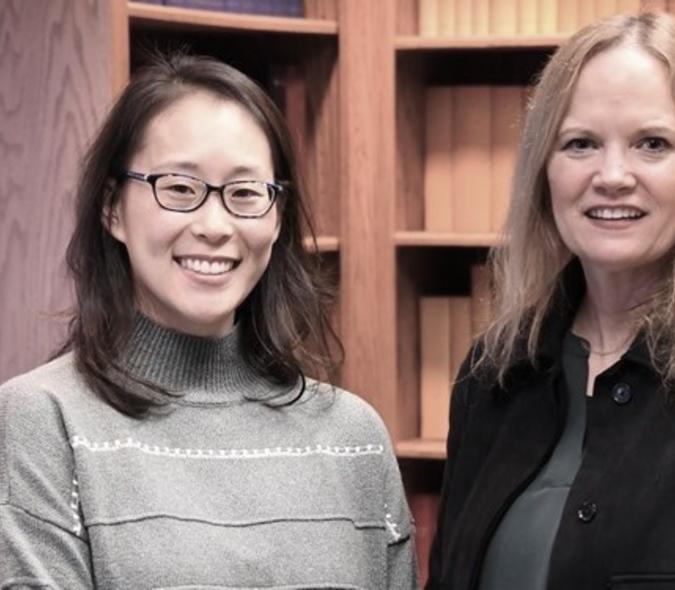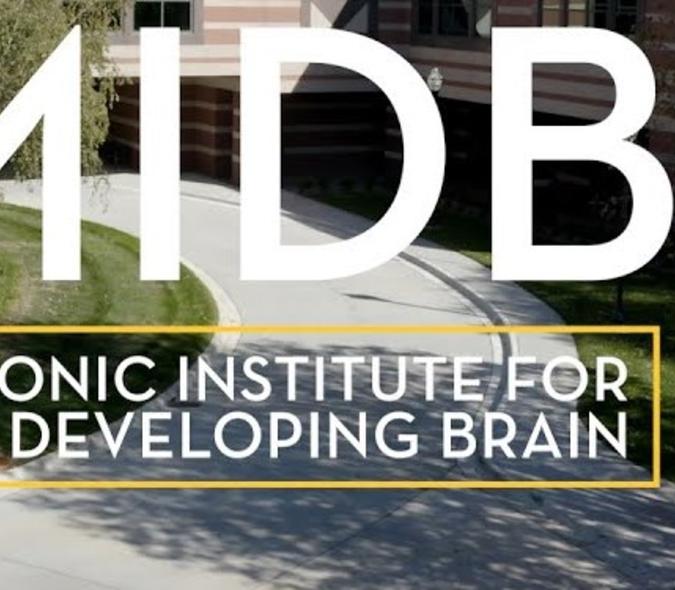
Celebrating the many ways that psychologists help us
Psychology Week was created last year by the American Psychological Association to celebrate the positive impact of psychology on our lives, our communities, and our world. Three of our psychologists talked about the ways that the profession helps its patients, its learners, and its communities through education, research, and advocacy.
Raising the next generation of psychologists
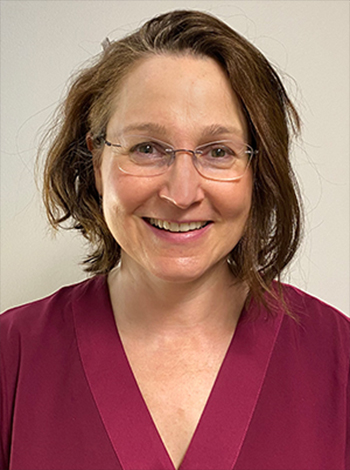
Director of Psychology Education Sabine Schmid (pictured here), PhD, LP, is proud of the way the Department of Psychiatry and Behavioral Sciences honors its commitment to psychology training. “We prioritize creating a safe and supportive environment, which brings out our learners’ curiosity and allows them to engage and experiment with new material,” she said. “In turn, this gives educators crucial feedback about our learners’ progress and allows us to adapt training accordingly.”
More recently, the Department has significantly advanced clinical training to place more emphasis on psychology students as members of multidisciplinary clinical teams. “Understanding the work of other providers on a patient’s care team helps us understand our patients better,” said Schmid. “It’s important to teach effective collaboration across disciplines.”
Multiple disciplines
Behavioral sciences education includes psychology, social workers, marriage and family counselors, and other mental health clinicians. “We have excellent leaders in these disciplines who partner with us,” said Schmid. “Close ties across disciplines within the behavioral sciences allows us to advocate more effectively for education within our department and create richer training for all trainees."
Thanks to concrete efforts over the past few years by Department leaders, psychologists have a stronger voice in their own training and are more integrated with psychiatry training, according to Schmid. “Earlier this year, for instance, we integrated residency didactics about behavioral interventions taught by psychologists with those on pharmacological interventions taught by psychiatrists, which was well received by the residents as it allowed for a better understanding of how these disciplines can work together to enhance clinical outcomes,” she said.
Schmid noted that the Department’s psychology training rests on a foundation of three core values: excellence in training (including constant assessment of both the student and the instructor and rigorous quality improvement); data-driven, evidence-based clinical care; and interprofessional collaborations. More recently, the Department has also placed considerable emphasis on diversity, equity, and inclusion (DEI).
Ever-changing work
“Our work is ever-changing,” said Schmid. “The important focus in training is not just to learn the current state of knowledge, but to learn how to stay up to date with your knowledge.” That includes learning how to read journal articles and understanding the source and its validity, according to Schmid. She believes it is important for behavioral sciences learners to understand how to navigate the huge ocean of information that’s at their – and at their patients’ — fingertips today. “People are Googling vast amounts of information and they also ask their doctor what they should do,” she said.
Psychologists play an important role in research
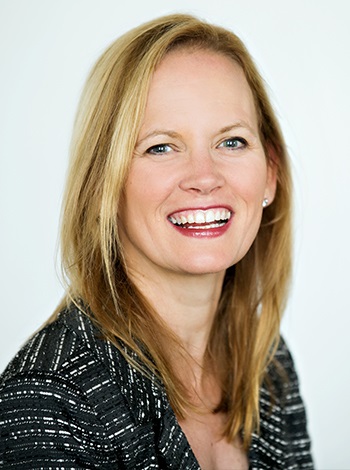
An active eating disorder researcher herself, Professor Carol Peterson (pictured here), PhD, believes that much of a psychologist’s training involves understanding the complexities of doing research – the empirical framework, understanding different conditions within mental health – and translating those to specific hypotheses that can be tested.
Peterson also believes that psychologists are trained to understand how the intersection between research and clinical work can be viewed. “Most of us come from programs that train us to do clinical work based on research and researchers who use clinical lenses to help us strengthen our empirical work,” she explained.
Dealing with complexity
Interdisciplinary and interprofessional research is important to psychologists, according to Peterson, especially with issues related to mental health because of its complexity. “In our studies about eating disorders, for example, we collaborate with psychiatrists, dietitians, and people who work in public health,” she said. “Team science helps us understand the many layers of mental health issues. What’s really changed over the past decade in eating disorders research is our deepening understanding of neuroscience. Our research team has been increasing our collaborations with neuroscientists to advance our understanding of eating disorders.”
Being trained as a psychologist has deepened Peterson’s natural curiosity and driven her passion for the work that she does, both as a researcher and clinician. “A lot of what we do in psychology is highly granular,” she said. “If we’re going to understand a behavior, we’ll look at specific contextual factors that affect that behavior, both in the clinic and in our research. As psychologists, we also focus on processes related to internal experiences – emotions, cognitions, thoughts, and sensory perceptions.“
Mechanisms of psychopathology
An important goal for her eating disorder research team and the clinical team she works with is trying to understand the mechanisms of psychopathology. “There are a lot of factors that can cause eating disorders and other types of psychiatric conditions,” said Peterson. “Some are related to the environment, some to genetics and temperament. But when these disorders develop, other psychological and neurobiological factors contribute to their maintenance. We’re trying to understand what those mechanisms are and how we can directly target them to help people recover.”
Advocating for patients, communities, and the profession
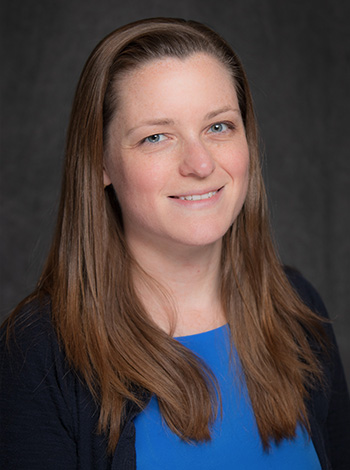
Psychologists are well positioned to advocate for their patients. “We’re trained to get into the micro-details of a patient’s problem,” explained Sasha Zagoloff (pictured here), PhD, LP, Director of the Behavioral Health Clinic for Families. “If someone comes in and says they’re sad all the time, there could be many different reasons for that. Before we jump in, we need to understand the etiology of the issue. We spend a lot of time defining and understanding a problem, which makes us better positioned to try to solve it.”
Another form of advocacy that psychologists are taking on is in diversity, equity, and inclusion (DEI). “I believe that improving DEI in our workspace is a change management process – recognizing what we could do differently and envisioning a new environment within which to do it. Psychologists are well positioned for facilitating that process,” said Zagoloff. “We’re skilled at assessing states and have a good grasp of what it means to go through change. At the end of the day, that’s what therapy is. Identifying the factors that either promote or slow down change and then enabling people to do the hard work because changing your environment isn’t easy.”
Learners ahead of curve
Zagoloff believes that the U’s behavioral sciences learners are ahead of this curve in many ways. “They have great ideas and to a certain degree, I see our role as supporting and nurturing as opposed to the more traditional sense of the faculty transferring knowledge to the learner,” she said. “Our learners are super DEI- and advocacy-oriented. As faculty, we just need to get out of the way sometimes.”
Another issue that psychologists are currently advocating for is changing CPT (Current Procedural Terminology) codes for billing. “That may seem boring but it’s super important when we think about healthcare delivery,” said Zagoloff. “There are efforts for having a CPT code dedicated to behavioral interventions that address smoking cessation, for example. It’s something that a lot of psychologists do and there isn’t a great way to capture it.”
Fighting for telehealth
Psychologists also want to ensure continuing access to coverage for telehealth. “Thanks to the COVID pandemic, growth in telehealth increased access to psychotherapy, especially for those in rural communities,” said Zagoloff.
In the education space, advocacy efforts are underway to enable getting paid for clinical services delivered by trainees. “In Minnesota, we’re lucky because our insurance companies do pay for services delivered by graduate students but that's not the case nationally,” said Zagoloff. “In addition, Medicare does not pay for such services, which makes it hard for an aging population to get psychotherapy because of the volume of our care that’s delivered by students.”
Obvious contributions
When advocating for her profession, Zagoloff takes a lighthearted approach. “We have amazing psychologists in our department who make it fun,” she said. “Our group’s contributions are so obvious that when it comes to advocating for the profession, it’s easy.”
#PsychologyWeek

